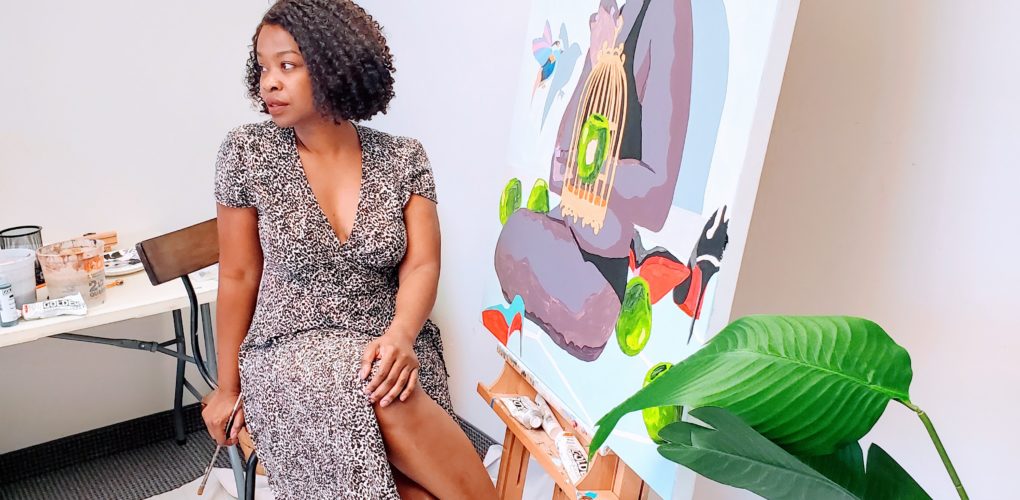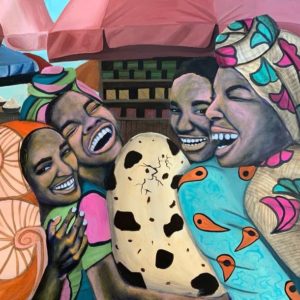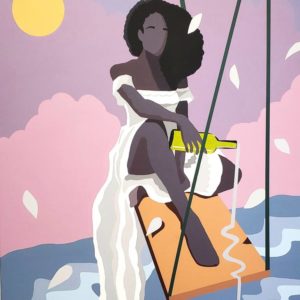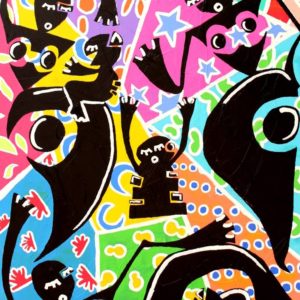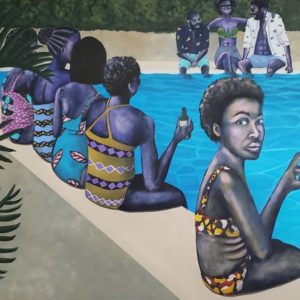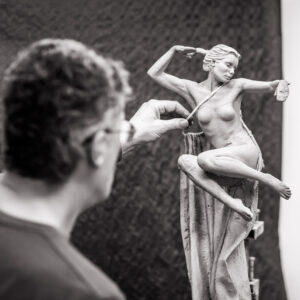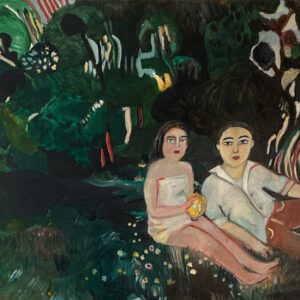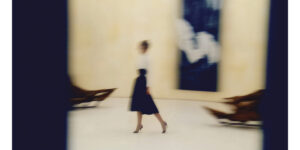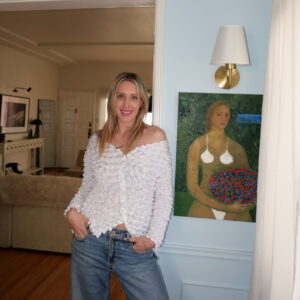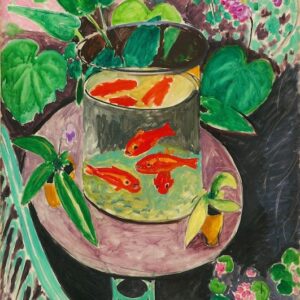Art News
 Inside the Studio: Abi Salami
Inside the Studio: Abi Salami
Get a glimpse Inside the Studios, a weekly IGTV series where our regional Fair Directors get taken on a personal Live tour around the workspaces and collections of The Other Art Fair exhibitors. Head to our IGTV to watch the interviews in full.
Lagos-born Dallas-based artist Abi Salami uses painting to explore the uncanny in the everyday, allowing her subconscious to inform her paintings while using a personal lexicon of symbols to explore memory, mental health, and race, specifically with the aim of destigmatizing mental illness in African communities. Abi was recently announced as Saatchi Art’s Rising Stars 35 Under 35, and today, we have been invited to Abi’s studio to learn more about her colorful portraiture works…
https://www.instagram.com/p/CFx7JgQFYGH/
You were recently announced as one of Saatchi Art’s Rising Stars 35 Under 35, congratulations! What does this achievement mean to you?
It means a great deal to me especially since I am a self taught artist with a background in finance. When I left my well paying corporate job to pursue my passion for art, I knew I was taking a huge risk and there were so many times when I felt like I might have made a huge mistake. So to be named as one of the 35 Rising Stars by Saatchi is an incredible accomplishment that I am so grateful for. Receiving this recognition makes all the blood, sweat and tears that I regularly put into my practice completely worth it.
Tell us a little bit about yourself and your creative practice. What first led you to painting as a medium?
I was born in Lagos, Nigeria to my parents, Ariyo and Ajibike Salami and we emigrated to the United States when I was ten. I expressed an interest in art from a young age. I would bring drawings as gifts for my paternal grandfather whenever we would go visit him and he encouraged my parents to buy me art supplies so I could continue to create. However, in Nigerian culture, art is seen as a pastime and not a career, so I went to business school instead of art school. However, I never stopped creating. While working at a job that required extensive use of the left side of my brain, I used art as an escape and a way to express myself. Even after leaving the corporate world, to chase my art dreams, I still use art as a form of expression and therapy.
What themes run through your works?
In my work, I like to explore themes that revolve around celebrating Black/African womanhood and destroying the stigma associated with mental health issues. It is important to me to explore these themes in my work because when I look at the work that is being celebrated by the art world, I notice a glaring lack of diverse representation. So in a way, my work is my form of activism and I use it to “lobby” for under-represented people and the issues that affect them. My hope is to change the narrative and show that art that portrays Blacks and African can be seen as just fine art, without the qualifier of being “black fine art”.
https://www.instagram.com/p/CFDFTzsFf-I/
Have you been working on anything new in your studio recently? If so, can you tell us a little about your inspiration…
For the first half of the year, I focused on commissions and I think doing that really helped to spread the word about my work. Right now, I am finally making time to create original pieces from the heart. 2020 has been an emotionally strenuous year for me and I feel like I finally have the chance to express my emotions about this year through my practice. My commissions are still open, but I have to admit that I am enjoying taking the wild ideas in my mind and placing them on the canvas.
In your portraiture works, who are your subjects and how do you decide who to portray?
Since most of my paintings are about my life experiences, I am usually portraying myself. But I also gain inspiration from photography. I might see a photo where I like a model’s eyes and another one where I like her pose. If I don’t use myself as a model, I will usually piece together different models to create a new fictional character.
What was the best advice given to you as an artist?
I was told to treat my practice like a business. I feel like society has kind of romanticized the “starving artist” concept, but I am a fervent believer that in this day and age, with all the technology readily available, it is not necessary to be a starving artist. It might be easier for me because I went to business school and not art school, but I believe treating your practice like a business and having a business plan can make a world of a difference in one’s long term art career.
